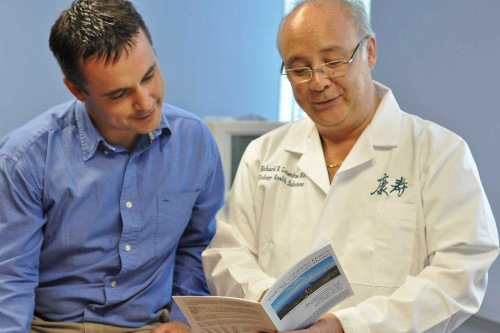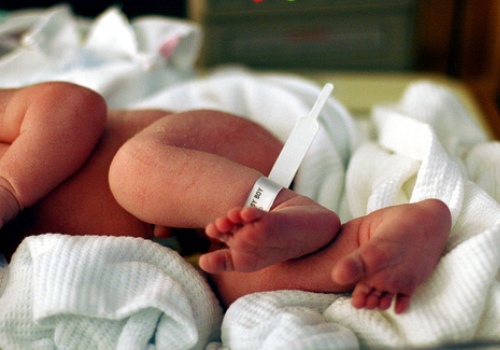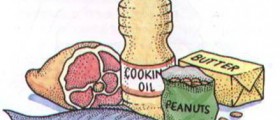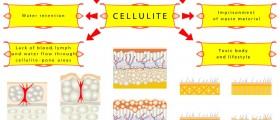
Circumcision Prevents Phimosis
Phimosis is a medical condition in which the foreskin is so tight that it can not be retracted (pulled back over the glans). This state is normal in baby boys. The foreskin usually starts separating from the glans at around age two, though it takes until puberty for this to happen in some uncircumsized boys. If a boy hits puberty and is still unable to retract his foreskin, phimosis can be diagnosed. This condition is sometimes painful, especially during sexual intercourse. Circumcision removes most of the foreskin — thereby preventing phimosis. Circumcision can also be recommended as a treatment for phimosis in some cases, though there are other treatments.
- Important notification about information and brand names used in this slideshow!
- Photo courtesy of New Media Ba by Picasa : picasaweb.google.com/104919940046622069790/Muskarci#5586477527404873202
- www.medicinenet.com/circumcision_the_medical_pros_and_cons/article.htm#circumcision_medical_pros_and_cons_facts
- http://www.nhs.uk/conditions/phimosis/Pages/Introduction.aspx

Circumcision And Penile Cancer
Studies indicate that circumcision reduces the risk of penile cancer, but only if the circumcision was carried out during infancy or childhood. Men who are circumcised as adults do not seem to reap the same protective benefits, unfortunately. In fact, some research suggests that those men who are circumcised during adulthood actually have a higher risk of developing penile cancer. The reasons behind this are not entirely clear, but it is known that phimosis and smegma build-up both increase a man's odds of getting penile cancer. Circumcision makes phimosis impossible and smegma build-up a lot less likely. Adults may election to b e circumcised after encountering these kinds of problems.
- Important notification about information and brand names used in this slideshow!
- Photo courtesy of Local photos by Picasa : picasaweb.google.com/lh/view?q=prostate&uname=109008901828086469253&psc=G&filter=1#5732007422193499922
- www.cancer.org/cancer/penilecancer/detailedguide/penile-cancer-risk-factors

Circumcision Lowers The Risk Of Urinary Tract Infections
Studies have repeatedly shown that boys who have been circumcised have a reduced risk of Urinary tract infections (UTIs) during infancy. Though infancy only lasts for a brief period of time, the UTI risk is important to take into account. Urinary tract infections can lead to permanent kidney damage in some cases, but they are always highly unpleasant. Research shows that uncircumcised boys are at a higher risk of developing urinary tract infections regardless of whether their urethra is visible from under the foreskin. This shows there is more to the story than the build-up of smegma under the foreskin during the period it is not retractable.

Circumcision Lowers The Cervical Cancer Risk For Your Partner
Did you know that being circumcised means that a man reduces his partner's risk of developing cervical cancer? Certain subtypes pf HPV are thought to be responsible for 100 percent of cervical cancers, as well as many anal and genital cancers. Circumcision significantly lowers a man's risk of getting HPV, which in turn means he is less likely to infect a partner and that partner is less likely to develop cervical cancer. Studies show that partners of circumcised men have a significantly lower risk of cervical cancer than partners of uncircumcised men, but also that the benefit is more significant in people who had a larger number of sex partners over their lifetime.
- Important notification about information and brand names used in this slideshow!
- Photo courtesy of chameli pradhan by Picasa : picasaweb.google.com/lh/view?q=sexual+partner&uname=109008901828086469253&psc=G&filter=1#5877178985310686978
- www.cdc.gov/hiv/prevention/research/malecircumcision/otherconditions.html

An Increased Chance Of Meatitis
"Meatitis" — even the name sounds nasty. It's an inflammation of the urethral meatus, more commonly known as the "pee hole". Circumcision may have certain medical benefits, but preventing meatitis isn't one of them. When the foreskin is removed, the glans is naturally exposed to much harsher conditions than it would otherwise be. The skin thickens, and essentially scars. The meatus is also subjected to much more friction, and that can cause meatitis. Meatitis can affect uncircumcised men too, but they have a lower risk. There is no evidence that meatitis causes long-term problems like the narrowing of the urethra, but it certainly isn't pleasant to deal with.

A Medical View Of Circumcision
The American Academy of Pediatrics (AAP) is certainly among the leading authorities when it comes to pediatric matters. So what does the AAP say about infant circumcision? The AAP points out that circumcision significantly reduces the risk of urinary tract infections within the first year of life, and that it reduces the risk of heterosexually acquired HIV and other sexually transmitted diseases later in life. They concluded that the medical benefits of circumcision outweigh the risks and that the procedure is generally well tolerated, but they also believe that parents should decide whether or not to move forward with the procedure, in accordance with their personal and religious beliefs.

When Are Circumcisions Performed?
Between 55 and 65 percent of newborn boys are circumcised in the United States each year. The percentages vary from region to region. Parents who have their baby boys circumcised for strictly medical reasons will usually have the procedure carried out before taking their baby home from the hospital he was born at. Circumcisions are often performed within 48 hours after birth. The procedure becomes more invasive with age, and the benefits also decrease. One thing parents want to watch out for when they ask pre-circumcision questions is whether the baby will be given adequate anesthesia. This ensures that the baby is as comfortable as possible.

A Lower Risk Of Heterosexual HIV Transmission
Did you know that circumcision lowers a man's chance of catching HIV? The World Health Organization says that there is compelling evidence that circumcision reduces the risk of HIV. Specifically, it reduces the risk of heterosexually acquired HIV infections by as much as 60 percent. The findings have led to adult circumcision programs in countries with HIV epidemics. It should still be clear that circumcision merely reduces the risk of HIV infection — it does not eliminate the risk altogether. Safe sexual practices should always be a priority, regardless of someone's circumcision status. The WHO also points out that circumcisions should always be performed by skilled professionals and in properly equipped settings.


























Your thoughts on this
Loading...